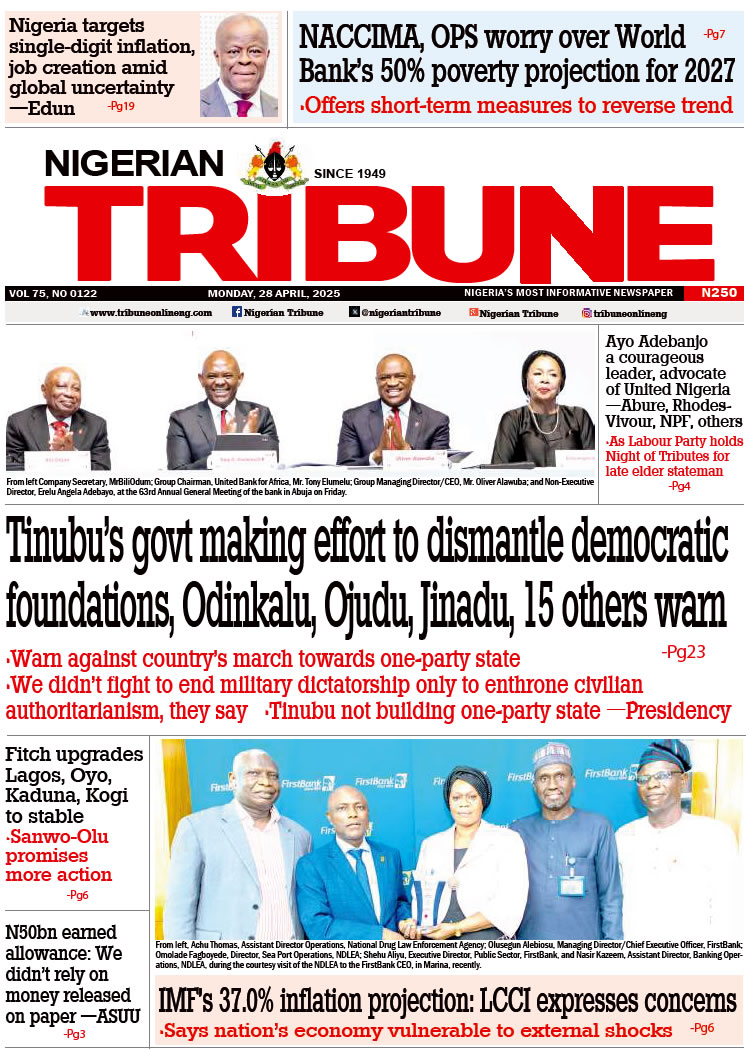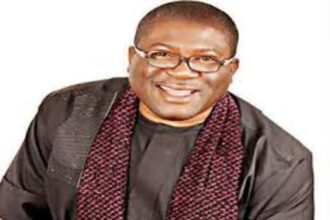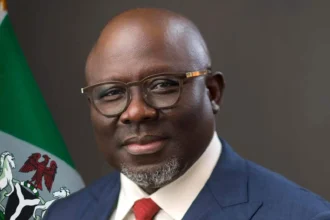Political scientists, leaders of development partners and other stakeholders on Thursday tasked political parties in the country on the need to take more deliberate actions to ensure the inclusion of women, youth and people with disabilities (PWDs) in internal party processes.
They gave the charge in Abuja, during the ‘Public dissemination of research report of Political Party Watch project on inclusive practices of Nigeria’s political parties’ co-authored by the National Institute for Legislative & Democratic Studies (NILDS) and Westminster Foundation for Democracy (WFD).
In his address, NILDS Director General, Professor Olanrewaju Sulaiman explained that the report focused more on the political inclusion of women, the youth and people with disabilities in the just concluded 2023 general elections, underscored the need to strengthen legal and institutional frameworks and improved transparency and accountability.
“The just concluded elections, perhaps more than any, have exposed some of these gaps again. The preponderance of divisive ethnic and religious sentiments and the alarming upsurge in politics of bitterness and animosity have raised serious questions on the sustainability of our democracy.
“This has been made even worse by the spread of fake news and misinformation on social media. All these challenges demand that we conduct in-depth research and introspection on the successes and shortcomings of our democracy and its institutions.
“By so doing, we can generate and deploy solid empirical evidence to strengthen and entrench democracy and good governance. This iterative learning is perhaps more important given the growing disenchantment with democracy as a system of government, especially by young people. Many countries in Africa have witnessed democratic reversals with disastrous consequences.
“In the last few days, Sudan has descended into chaos caused by a needless war with catastrophic effects on innocent civilians caught in the conflict’s crosshairs. Nigeria must provide the needed leadership to other African countries on the merits of a democratic system that is inclusive, accommodative and focused on the best interest of citizens rather than the interest and egos of individuals.
“An essential requirement for sustainable democracy is political inclusion, especially for minorities and marginalised groups. Indeed, the very notion of democratic governance is premised on the notion of equal participation by all citizens.
“Therefore, women, young people, and people with disabilities need equal and meaningful participation and representation in all facets of the electoral process. Women and youth constitute more than half of Nigeria’s population, yet their participation in governance processes – where decisions are made – remains peripheral. It is these and related issues that prompted this research and the outcome that is presented today as a report. I sincerely thank our partner on the ‘Political Party Watch’ project, the Westminster Foundation for Democracy (WFD).”
According to him, the research report critically examines the internal processes and activities of the 18 political parties to identify the deliberate steps they have taken to ensure the inclusion of the indicated populations. The methodology adopted in the study includes expert interviews of a cross-section of citizens and political party leaders and tracking of developments before, during and after the just concluded elections.
On her part, Resident Representative of Konrad Adenauer Stiftung (KAS) in Nigeria, Marija Peran observed that the report on the 2023 general elections “brings into the table a very relevant topic which is a critical prerequisite for political as well as sustainable social and economic development which is the inclusion of marginalised population in Nigeria, and this is particularly women, youth and people living with disabilities.”
In the bid to achieve the feat, the Experts who authored the report underscored the need for the National Assembly to enact legislation that would “stipulate a minimum number of representation of women, youth and PWDs in political parties’ executives.
“A legislation to reduce the cost of running for elective positions across the different tiers of party structures – Ward, Local Government, State and National. A legislation to institute a quota system at all levels of government and ensure that all relevant stakeholders such as INEC and political parties adhere strictly to it.”
They also urged Independent National Electoral Commission (INEC) to establish publicly accessible registers of political parties with the basic search too capable of identifying members by gender, location, age bracket and disability status to aid vertical and horizontal fertilisation and mobilisation by under-represented groups; Establishment of mechanisms to monitor and ensure compliance of inclusion among women, youth and PWDs in the political parties as well as ensuring that all political parties invest in the regular updates of their membership data in a most comprehensive, comprehensible and machine-readable format.
They also urged political parties to design and deliver an annual plan of off-election programmes to promote the inclusion of under-represented groups in political parties; create networks of support for prospective party leadership and elective public office to be paired with established men/women politicians who will play key roles as mentors, thus helping them (especially young aspiring female politicians) build capacity to enhance and prepare them for future elections as well as ensure full implementation of all provisions in political parties’ constitutions and manifestos as they relate to women, youth and PWDs.
READ ALSO FROM NIGERIAN TRIBUNE








